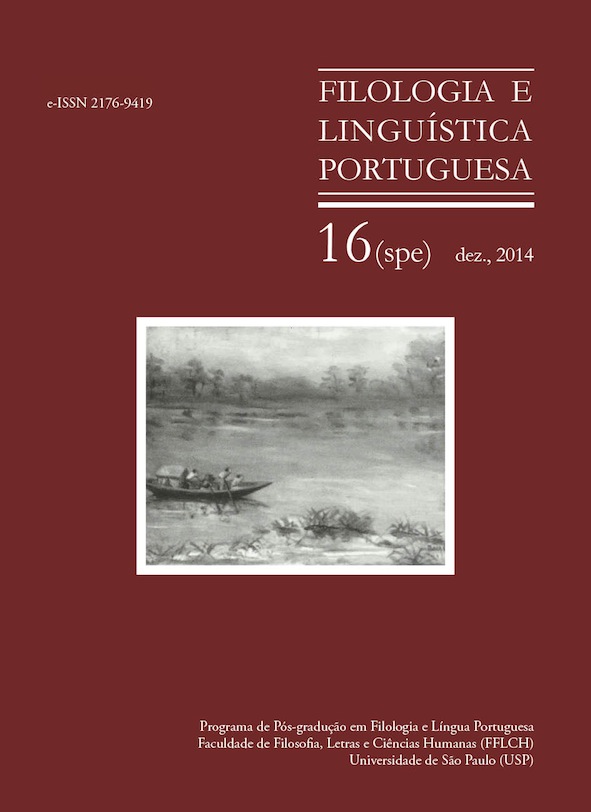3rd person possessives: Old Portuguese and Modern Brazilian Portuguese
DOI:
https://doi.org/10.11606/issn.2176-9419.v16ispep15-51Keywords:
Possessives, Brazilian Portuguese, Old Portuguese, Pronominal system.Abstract
This paper addresses some comparative aspects of the 3rd person possessive pronouns seu and dele in Modern Brazilian Portuguese (BP) and Old Portuguese (OP). Following Müller (1997) and Menuzzi (1999, 2003) we propose that the BP pronominal system is undergoing some change which made seu become disfavored as an anaphoric form for 3rd person referential antecedents. The generalization has a ramification for the fact that the form dele is the possessive for 3rd person. We also assume Menuzzi’s ideia that the restriction on 3rd person referential antecedents follows from a syntactic condition on anaphoric dependencies, the Chain Condition, which applies to sentential anaphora because it is the way syntax interprets Accessibility Principles, which govern discourse anaphora. In OP, however, the form seu is strongly preferred as a 3rd person possessive pronoun. In these terms, it can take referential antecedents and also be bound by quantified antecedents. We assume that the morphosyntactic properties that differentiated the two forms, seu and dele, mainly gender and number, were crucial to the historical development of the Portuguese language. Other archaic possessive strategies as the dative clitics lhe/lhes~lhi/lhis and the construction seu…dele are also discussed as evidence for dele as a possessive form. We concluded the paper with some suggestions about the cause of the diachronic reanalysis that affected the 3rd person possessive system in the history of BP.Downloads
Download data is not yet available.
Downloads
Published
2014-12-03
Issue
Section
Papers
License
Copyright is transferred to the journal for the online publication, with free access, and for the printing in paper documents. Copyright may be preserved for authors who wish to republish their work in collections.
How to Cite
Morais, M. A. T., & Ribeiro, I. (2014). 3rd person possessives: Old Portuguese and Modern Brazilian Portuguese. Filologia E Linguística Portuguesa, 16(esp.), 15-51. https://doi.org/10.11606/issn.2176-9419.v16ispep15-51






















